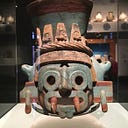Raw and honest, it gives the sense of deep wounds and scars that have just begun to heal. The feeling of a barely contained rage is palpable.
It reads on first pass as a "woman's" poem. In the sense that it deals with the Mother/Daughter relationship. To stop there would be a mistake.
Rereading and contemplation allowed me to consider, that while the poem is grounded in the Mother/Daughter dynamic, it speaks to the universal experience of the "outsider" child. The unwanted, unloved, marginalized, and rejected child.
The child for whom love was always conditional and doled out in small spoonfuls. The child that tries the hardest to please, earning the love they have longed so desperately for, whose efforts are never "good enough".
The child for whom "family" will always be people who take and never give. An afterthought in everyone's mind when plans are made and invitations sent.
When you are that child and decide to "draw a line in the sand" setting yourself free is acceptance of reality. When you can say this,
When the most worst Other
Is your actual mother,
It takes time to kneel before your own heart
And make its recovery -- your art.
Then you are ready to start healing and building your "family of choice".
You might find this book helpful. It clarified a lot of things in my head/heart about my feelings for parents.
Why Do I Love These People? Understanding, Surviving, and Creating Your Own Family
Book by Po Bronson
I liked the poem, the honesty of it makes it strong. Technically it is a little weak. Rhyming couplet verse form is inadequate for the emotional intensity of the material. The constrains of the form make some of the wording feel awkward and forced.
The last four lines are the strongest. They form a poem within the poem that distills your message down to it's essential core.
